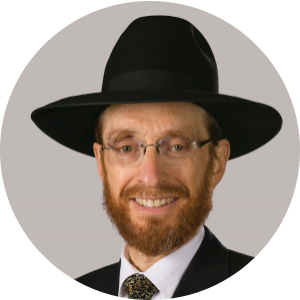The Camel and the Car

When a mother weans her child, she is actually giving him the priceless gift of independence
“Baruch” and “Shevi” were professionals in their thirties, tall, and very self-assured. They seemed comfortable with each other and quite at ease consulting me about their eight-year-old son, “Nachy.”
“We would like you to treat our son,” Baruch began, getting straight to the point. Both parents agreed that Nachy was bright, athletic, and well behaved at home and in yeshivah. He also got along well with his two younger siblings. Their concern, however, was that Nachy was somewhat socially withdrawn and appeared to lack confidence. As a result, he had few friends, and the few he did have were not close friends.
“We’re looking ahead,” Baruch explained. “And we don’t want him to continue this way for the rest of his life. If possible, we would like this cleared up while he’s still young. We want you to help him overcome whatever it is that’s causing him to be this way.”
I spent the rest of the consultation looking for possible clues that could shed light on the source of Nachy’s difficulties.
“Is this a recent development, or has he always been this way?” I asked.
“He’s always been this way,” Baruch replied.
“Was he ever victimized, bullied, or abused?” I asked.
“Not that we know of,” Shevi responded.
“Have you tried talking to him about it? And if so, what does he say?” I probed further.
“Yes, we’ve tried,” Shevi said, with a heavy sigh. “But he just shrugs his shoulders and walks away.”
It was toward the end of the session that I gave one final stab at trying to identify at least an angle for future exploration. “Does Nachy have any particular fears or phobias?”
“No, not really,” Shevi answered, shaking her head. Then, as an afterthought, she added, “Well, once in a while, he wakes up from a bad dream. But then he climbs into bed with his father and falls right back asleep.”
I sat up straight and asked, “Approximately how often does that happen?”
“Only once or twice a week,” Shevi replied matter-of-factly.
I told Baruch and Shevi there was no reason for me to see their son. If he was spending the night in his father’s bed that often at eight years old, that was at least a major contributing factor in causing his lack of confidence and social withdrawal. At eight years old, he should have been mature and independent enough to spend the entire night in his own bed. Being unable to master this developmental task is enough to undermine the confidence of any eight year old, I explained. Furthermore, by allowing this prolonged, age-inappropriate dependence, his parents were actually perpetuating the problem they wanted me to solve.
Baruch appeared almost relieved by my assessment. Shevi, on the other hand, practically took umbrage at it. “I’m absolutely unwilling to let him cry through the night,” she declared, drawing a line in the sand. I offered to work with them to help them gradually achieve the goal of Nachy spending every night in his own bed, but she flatly refused.
I thought that was the end of that, but I received a call from Baruch a few weeks later. He told me his wife would soon be going to Florida for two weeks to visit her parents, and he wanted to know if it would be possible for me to work with him alone to help him teach Nachy to sleep in his room throughout the night before his wife returned.
I agreed to guide Baruch for the next two weeks, and by the time Shevi came home, Nachy was no longer coming into his parents’ bedroom at night. Three months later, Baruch called to inform me that Nachy seemed to have “come out of his shell,” and was making friends in yeshivah.
Rabbi Jonathan Rietti gave a lecture a few years ago in which he quoted the pasuk, “And the boy grew up and was weaned” (Bereishis 21:8). He then asked the following question: Why does the Hebrew word for withholding nursing by weaning, vayigamal, have the same shoresh as the word for giving, gomel, which is just the opposite?
He explained that when a mother weans her child, she is actually giving him the priceless gift of independence.
My dear friend and colleague, Rabbi Yaakov Salomon, was in the audience and approached Rabbi Rietti after the lecture. The word for camel, gamal, also has the same shoresh, Rabbi Salomon pointed out. What was the significance of that? he wanted to know.
Rabbi Rietti was delighted by the question. A camel, he explained, can be given water and then travel for days and days in the desert without receiving any more, providing yet another example of how giving and withholding are connected.
The late Lakewood rosh yeshivah, Rav Shneur Kotler ztz”l, also addressed the vital importance of fostering independence in children. “There are those people who instead of being mechanech their children when they are young, they train them to fulfill mitzvos [as one would train an animal]. Not once do they allow the child to choose and use his own judgment. People like that are lacking in [basic] humanity.” (Binyan Habayis p. 180)
Another friend of mine has a son who was learning in an out-of-town yeshivah. After an off-Shabbos, this son asked and received permission to take the family’s second car to drive back to yeshivah. Although he’d been driving for some time already, this would be the first time he would drive such a long distance.
A neighbor of my friend was incredulous when he heard about this plan. “Aren’t you nervous to allow your son to drive out of state for the first time?” he asked him.
“Of course, I certainly am nervous,” my friend retorted. “But that shouldn’t prevent me from allowing him the independence he’s entitled to have at his age.”
Parents have a natural urge to give to their children. If, however, they can resist that urge and when necessary, hold back from giving in order to promote their children’s independence, they will be giving them the greatest gift of all.
Dr. Meir Wikler, a frequent contributor to this space, is an author, psychotherapist, and family counselor in full-time private practice, with offices in Brooklyn and Lakewood. He is also a public speaker whose lectures and shiurim are carried on TorahAnytime.com
(Originally featured in Mishpacha, Issue 954)
Oops! We could not locate your form.






